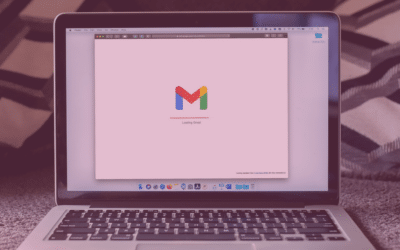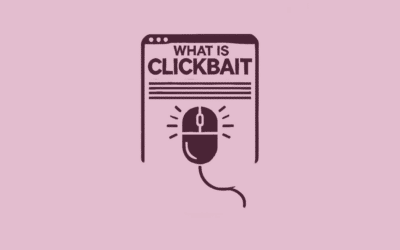What Are Sponsored Tags?
Understanding the Purpose and Benefits
In digital marketing, sponsored tags help make online content clear and honest. These tags, including nofollow, sponsored, and UGC (User-Generated Content) links. Sponsored tags are key in shaping how web links work with search engines. They do more than just categorize; they tell search engines which links are paid for and which are not. This helps keep search results reliable and makes sure users can trust what they find.
Using sponsored tags brings many advantages. For marketers and website owners, these tags help follow search engine rules, protecting their site’s reputation and search positions. They also make it clear to users when a link is paid for, which builds trust and strengthens the site’s standing online.
How Search Engines View Sponsored Tags
Search engines like Google are really good at picking up on sponsored tags. When they check a webpage, they look at the links and their tags to figure out what they’re for. Sponsored tags tell search engines that a link is for ads or sponsorships, not regular content.
This makes a difference in how search engines rank these links. For example, a “nofollow” tag means search engines won’t give the linked page any extra ranking boost, unlike they might with normal links. This keeps sponsored links from unfairly pushing up a webpage’s ranking, keeping search results fair and relevant.
Integrating Sponsored Tags for SEO Success
Using sponsored tags shows that a brand is all about being open and playing by the rules in SEO. It means carefully labeling paid links the right way—using “rel=’sponsored'” for ads and sponsorships, “rel=’nofollow'” for links you don’t want to back, and “rel=’ugc'” for links in user comments and forums.Doing this helps a website do well in SEO by sticking to search engine rules and avoiding penalties for sneaky behavior.
Nofollow Tags: Importance and Usage
Explaining the Functionality of Nofollow Tags
Nofollow tags are a key tool for SEO experts, meant to guide search engines on handling certain links on a website. They were created to stop spam and undue link endorsements. The “rel=’nofollow'” attribute signals search engines to ignore some links when determining a webpage’s ranking. So, if a link has a nofollow tag, it doesn’t help the linked page rank higher, keeping search results fair.
Nofollow tags are really helpful in digital marketing and content creation, especially when you want to link to other sites for more info without affecting how search engines view those sites’ importance. They’re also important for following search engine rules, like when dealing with paid content or ads. Using nofollow on paid links helps avoid penalties from search engines like Google for passing on ranking benefits, which isn’t allowed.
Adding nofollow tags is simple but needs thought. When you link to something but don’t want to boost its SEO value, just put rel=”nofollow” in the link code. This way, the link works for users but doesn’t help the linked site’s search ranking.
UGC Tags: Harnessing User-Generated Content
Leveraging UGC Tags for SEO
UGC (User-Generated Content) tags are a new tool in SEO that helps tell search engines when a link comes from things like comments or forum posts made by users, not the website’s main writers. The “rel=’ugc'” tag lets search engines know this link is from the community.
As more people add to websites through comments and posts, search engines need a better way to understand these contributions. UGC tags help by ensuring search engines treat these user-added links differently from the main site content.
Using UGC tags is good for SEO because it helps avoid problems that might come from links in user comments or posts. Without these tags, your site might accidentally give too much credit to other sites that don’t offer good value, which can hurt your site’s SEO.
These tags also show that your site values honesty and the contributions of your community. They help keep a good balance, making sure user content is seen as important but not letting it harm your site’s standing with search engines.
Differences and Similarities Between Nofollow, Sponsored, and UGC Tags
Understanding the Distinctions
To use nofollow, sponsored, and UGC tags right in SEO, it’s important to know what each one does. They all have different jobs in telling search engines about the links on your website, which affects how your pages show up in search results.
The nofollow tag tells search engines to ignore a link. This means the link won’t help the linked page rank better in search results. It’s a general tag you can use for any link you don’t want to boost, like those you don’t fully support or spammy links.
The sponsored tag is more specific. It’s for links you got paid for, like ads or sponsorships. This tag keeps things clear and follows search engine rules about paid links, making sure they’re not mixed up with regular content.
The UGC tag is for links in content your site’s visitors create, like comments or forum posts. It lets search engines know these links come from your users, not you. This way, search engines can understand and value these links properly when looking at your site’s SEO.
Understanding these tags helps you guide search engines in treating links on your site, ensuring your SEO is on point.
When and How to Combine Attributes
Sometimes, you might need to use more than one tag on a link. For example, a paid link in a user’s comment can have both “sponsored” and “UGC” tags like this: rel=”sponsored ugc”. This tells search engines exactly what the link is about, covering both the paid aspect and the fact that it’s in user content.
Knowing when to use these tags, alone or together, is key for good SEO and following the rules. It’s all about supporting good content, being clear with your audience about what links are, and sticking to what search engines expect.
Maximizing SEO Performance with Sponsored Tags
Strategies for Effective Link Building
In SEO, creating links to your site is still very important for making your site more visible and trusted. Using sponsored tags carefully can really help with a smart link-building plan, making sure you follow search engine rules and market ethically. The focus should be on quality, not just how many links you have, and on connecting with websites that share your values and interest your audience.
A good way to build links with sponsored tags is to look for real chances to work together in ways that help both sides. This could be through sponsored posts on top blogs in your industry, working with influencers, or getting featured in well-known online magazines. By using sponsored tags the right way on these links, you keep things clear and honest, helping your SEO and keeping your site’s reputation strong.
Expert Insights and Resources
Stay Updated with the Latest SEO Trends
In the ever-changing world of SEO, keeping up with new trends, updates to algorithms, and best practices is key to staying ahead. Search engines often update how they work to improve how they answer searches, which can really affect how you should use sponsored, nofollow, and UGC tags for your website.
A good way to stay in the loop is by listening to SEO experts. You can follow well-known figures in the SEO field, attend industry events, or join webinars and online forums where the latest SEO topics are discussed. These places are great for getting insights into how any changes might impact the way you handle links and SEO on your site.
Recommended Tools and Resources
Using the right tools can really boost your SEO work, especially when it comes to handling links and making sure you’re following search engine rules. Here are some tools that can help you check your site’s links, see if you need to add any special tags, and keep an eye on your SEO health:
- SEO Audit Tools: Big-name tools like SEMrush, Ahrefs, and Moz are great for checking your whole site, including whether you’re using nofollow, sponsored, and UGC tags right. They can point out what’s working and what needs fixing to help your site rank better.
- Webmaster Tools: Tools like Google Search Console give you info straight from the search engine, showing how your site shows up in searches, any indexing issues, and alerts for penalties or link problems.
- Link Management Plugins: If your site uses a platform like WordPress, there are plugins that can automatically manage link tags for you, making sure every link has the right tag for nofollow, sponsored, or UGC, keeping things consistent and by the book.
Adding these tools to your SEO toolkit can make managing your site’s links much easier. They give you the insights and help you need to make sure your link strategy is on point, keeping your site in good standing with search engines and helping your SEO efforts pay off.
To sum up, keeping up with SEO trends, connecting with others in the field, and using the right tools and resources are essential for boosting your website’s SEO. By always learning and adjusting to changes in SEO, you can make sure your link strategy, including sponsored tags, works well and follows search engine rules.



